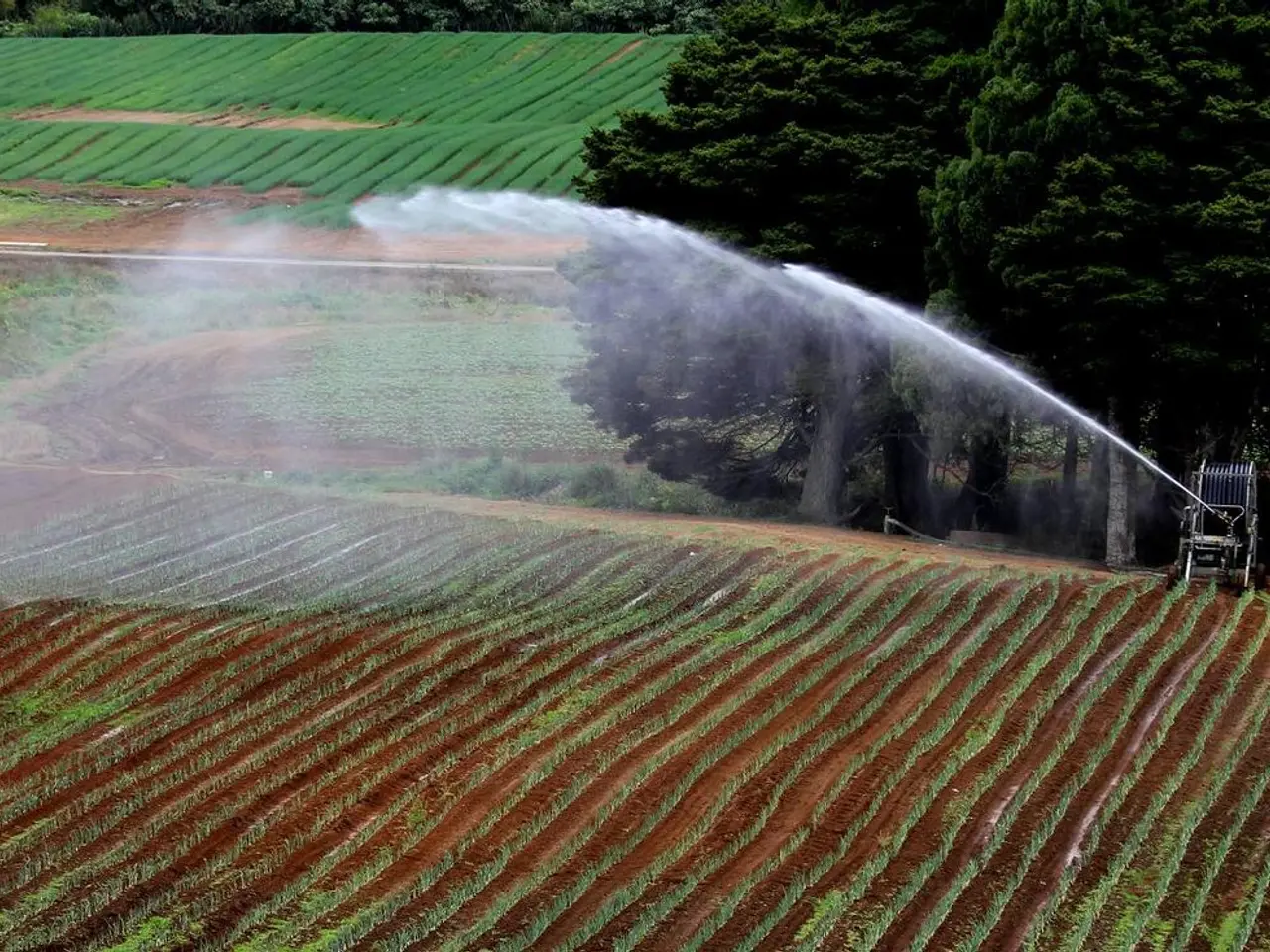City Dwellers Embrace Agricultural Life in Rural Regions
In the bustling city of Bengaluru, India's IT capital, a shift towards sustainable living is underway. Tech professionals are joining farming collectives, integrating digital innovations into agriculture to promote environmental responsibility and accountability.
One such collective is the Tamarind Valley Collective (TVC), founded by Varun Pandey and Yathesh Kumar near Denkanikottai. TVC, part of WeCommunities, aims to grow a regenerative food forest that meets most of its food needs and relies on harvested water for irrigation, instead of groundwater. The collective, home to 52 families, strives to balance farm-to-table culture with the lifestyle of villagers in Thaggatti, working closely with villagers and employing at least four families.
Six farming collectives are currently operational in the outskirts of Bengaluru, using solar energy, rainwater for crops, and restorative farming methods. One such farm is Vanam Farms, an 8.5-acre farm in Belalam village, run by Venkatachalam Krishnan and three others, growing vegetables like beans and cabbage.
Tech skills enable the automation of labor-intensive tasks like irrigation and crop monitoring, making farming more scalable and efficient. They can facilitate the creation of cooperative digital platforms and shared infrastructure, fostering inclusivity and reducing costs. Furthermore, tech-driven marketing solutions can ensure farmers receive a Minimum Support Price (MSP) and direct access to buyers, improving livelihoods and economic sustainability.
By leveraging digital technologies, tech professionals can help farmers adopt cutting-edge sustainable farming methods like hydroponics, which reduce water and land use, provide climate adaptability, and allow multiple harvest cycles per year. They can also help implement Climate-Smart Agriculture (CSA), boosting productivity and resilience to climate change, especially for smallholder communities.
Urban farming, according to Shannon Olsson, director of the Echo Network, builds a deep connection between people and their land, teaching children about ecosystems and the importance of ecological culture. Government initiatives have created Farmer Producer Organizations (FPOs) to provide technology and financial support to farmers and connect them to fair price markets.
However, farmers in India face a variety of problems, including farmer suicide, poverty rates, and class oppression that prevents them from accessing government benefits. The FPOs now focus on teaching practices like using biochar to enrich the soil instead of burning agricultural residues.
Navin Horo, national project coordinator of the Climate Change Knowledge Network in Indian Agriculture, suggests that urban farmers engaging with local farmers can help address the socioeconomic aspects of environmental issues. As tech professionals continue to join farming collectives, they can significantly advance sustainable living by bridging digital innovation and traditional agriculture, improving efficiency, environmental stewardship, market access, and farmer resilience to climate challenges.
The air quality in Bengaluru averages 110 on the Air Quality Index, which is unhealthy for sensitive populations. With severe traffic congestion keeping residents in traffic for up to three hours a day, amounting to an extra 243 hours a year, the need for sustainable living solutions becomes increasingly urgent. The rise of farming collectives like TVC and Vanam Farms offers a promising path towards a greener, more sustainable future for Bengaluru and beyond.
[1] Source for tech professionals and digital innovations [2] Source for hydroponics and water conservation [3] Source for Climate-Smart Agriculture and digital agronomy tools
- Tech professionals can seek guidance from sources like the Tamarind Valley Collective (TVC), which showcases the integration of digital innovations into sustainable agriculture.
- For insights on hydroponics and water conservation techniques, the community could refer to resources such as the Vanam Farms, an exemplary farm that employs these methods effectively.
- The practice of Climate-Smart Agriculture (CSA) and the use of digital agronomy tools can be explored further through entities like the Climate Change Knowledge Network in Indian Agriculture.
- The newsletter of WeCommunities, the network in which Tamarind Valley Collective is a part, could provide updates on the balance of farm-to-table culture and villager lifestyles.
- Reading about farm-to-table culture and its impact on communities, one may find valuable information in lifestyle magazines like Vogue India or National Geographic Traveller India.
- Education on climate change and climate-smart farming methods can be found in magazines such as Science, Nature, or ScienceDirect, helping to foster a culture of sustainability.
- The magazine Environmental Science & Technology covers topics like climate-change mitigation strategies and the role of digital innovation in environmental science.
- It's possible to explore the role of fashion and beauty industries in sustainable living through sustainable-focused magazines like Ethical Consumer or Common Objective, or by following fashion brands with strong sustainability initiatives to make eco-friendly fashion and beauty choices.






